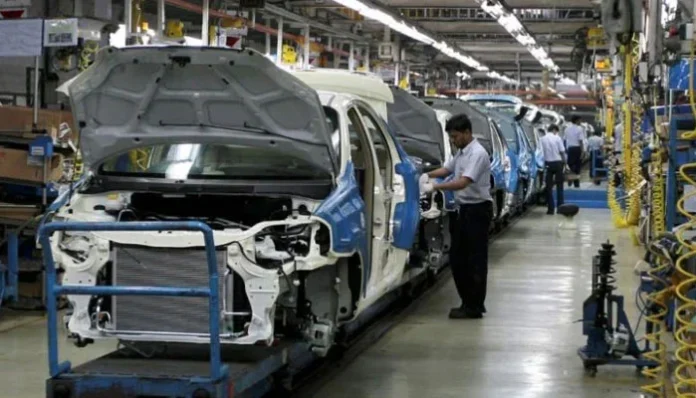The Federal Board of Revenue (FBR) has implemented a significant tax policy change affecting the automotive industry in Pakistan. Specifically, the FBR has introduced a 25% sales tax on domestically manufactured or assembled cars priced above Rs4 million. This decision, as reported by The News, is anticipated to have profound implications for the already struggling auto sector.
According to the notification issued by the FBR, the 25% sales tax will continue to be applicable to locally manufactured or assembled vehicles with engine capacities exceeding 1400cc. This move represents an adjustment in tax policy, with the aim of generating revenue and potentially influencing consumer behavior in the automotive market.
The genesis of this decision can be traced back to approvals granted by the Economic Coordination Committee (ECC) and the federal cabinet during the tenure of the former caretaker government. Under these approvals, a 25% general sales tax (GST) was sanctioned for all vehicles manufactured locally, exceeding the price threshold of Rs4 million or possessing engine capacities surpassing 1400cc.
Predictably, this decision has been met with resistance from Pakistan’s auto manufacturers, who argue that the increased sales tax will disproportionately impact domestic car producers while sparing importers of used cars. This opposition underscores concerns within the local industry regarding competitiveness and market dynamics.
The FBR estimates that the implementation of these taxation measures will result in revenue collection ranging from Rs4 to Rs4.5 billion annually. This revenue projection underscores the fiscal significance of the policy change and its potential impact on government finances.
The ECC’s approval of the FBR’s proposal initially entailed a 25% GST on vehicles with engine capacities exceeding 1400cc. However, the FBR introduced an additional criterion, stipulating that vehicles priced above Rs4 million would also be subject to the 25% GST. This modification indicates a nuanced approach aimed at aligning taxation with both engine capacity and price.
Previously, vehicles with engine capacities exceeding 1400cc were subject to a flat 25% GST rate. However, the introduction of price sensitivity now dictates that vehicles priced above Rs4 million will face the increased 25% GST rate instead of the previous 18%. In contrast, smaller cars with engines up to 850cc will continue to be taxed at a lower rate of 12.5%.
The decision to increase the GST rate to 25% for luxury vehicles with engine capacities above 1400cc is consistent with international practices aimed at curbing the consumption of luxury goods. The FBR cites examples of other countries with similar or higher tax rates on luxury cars, positioning this policy change within a broader context of fiscal measures targeting luxury consumption.
The FBR’s implementation of a 25% sales tax on high-value domestically manufactured or assembled cars represents a significant policy shift with far-reaching implications for the automotive industry and government revenue. This move underscores the complex interplay between taxation, consumer behavior, and industry competitiveness within the Pakistani economy.


